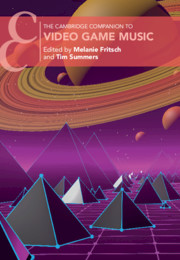Book contents
- The Cambridge Companion to Video Game Music
- Cambridge Companions to Music
- The Cambridge Companion to Video Game Music
- Copyright page
- Contents
- Figures
- Tables
- Musical Examples
- Contributors
- Preface
- A Landmark Timeline of Video Game Music
- Foreword: The Collaborative Art of Game Music
- Introduction
- Part I Chiptunes
- Part II Creating and Programming Game Music
- Part III Analytical Approaches to Video Game Music
- Part IV Realities, Perception and Psychology
- Part V Game Music, Contexts and Identities
- 18 Game Music and Identity
- 19 Game Music and History
- 20 Open Worlds: Globalization, Localization and Video Game Music
- 21 Female Credit: Excavating Recognition for the Capcom Sound Team
- Part VI Beyond the Game
- 24 Producing Game Music Concerts
- Select Bibliography
- Index
20 - Open Worlds: Globalization, Localization and Video Game Music
from Part V - Game Music, Contexts and Identities
Published online by Cambridge University Press: 15 April 2021
- The Cambridge Companion to Video Game Music
- Cambridge Companions to Music
- The Cambridge Companion to Video Game Music
- Copyright page
- Contents
- Figures
- Tables
- Musical Examples
- Contributors
- Preface
- A Landmark Timeline of Video Game Music
- Foreword: The Collaborative Art of Game Music
- Introduction
- Part I Chiptunes
- Part II Creating and Programming Game Music
- Part III Analytical Approaches to Video Game Music
- Part IV Realities, Perception and Psychology
- Part V Game Music, Contexts and Identities
- 18 Game Music and Identity
- 19 Game Music and History
- 20 Open Worlds: Globalization, Localization and Video Game Music
- 21 Female Credit: Excavating Recognition for the Capcom Sound Team
- Part VI Beyond the Game
- 24 Producing Game Music Concerts
- Select Bibliography
- Index
Summary
Video games are an international phenomenon. That statement is true both in the colloquial sense – games are a tremendously popular media form enjoyed by more than a billion players around the globe – but also in the sense that they are profoundly international. Games on my phone, computer or shelf right now were created in countries including: Canada (Assassin’s Creed), Germany (Risen), Japan (Final Fantasy XV), Poland (The Witcher 3), South Africa (Desktop Dungeons), South Korea (Magna Carta), the United Kingdom (The Room), the United States (Fallout) and Uruguay (Kingdom Rush) – amongst others. Despite this diversity, however, relatively few video games are overtly identified as products of any particular geographic region. Instead, developers often deliberately eliminate or minimize region-specific identifiers through a process called localization, in which aspects of a game are adapted to fit the perceived cultural norms and preferences of a target market.1 This process most obviously includes translation of all game text into different languages, which can be in itself a fraught process. Yet localization also involves a wide range of minor, or possibly major, alterations to game content.2 The economic allure of localization is immense, and well documented. As Rebecca Carlson and Jonathan Corliss have noted, the fundamental concept is that ‘products must appear as if they were manufactured domestically, suggesting that consumers only want goods that feel familiar and “local”’.3 Moreover, in some cases developers must localize games to accommodate legal restrictions, as in the case of Germany, where certain types of imagery and violence are restricted in games.
- Type
- Chapter
- Information
- The Cambridge Companion to Video Game Music , pp. 359 - 375Publisher: Cambridge University PressPrint publication year: 2021
- 2
- Cited by

